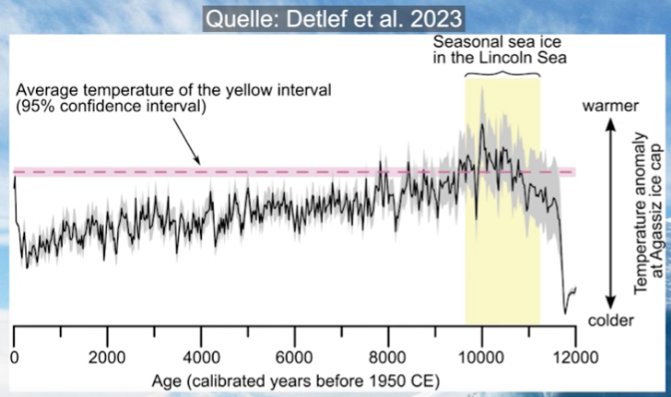In its latest assessment report, the UN’s International Panel on Climate Change (IPCC) states that the frequency and intensity of global heavy rainfall events “have likely increased” over the majority of land regions. The claim forms the backdrop for countless stories of increased deadly flash-flooding brought on by human-caused climate change. Alas, for catastrophists, the evidence suggests it would be more accurate for the IPCC to note that recent rainfall intensity has ‘likely not increased’ across the globe.
A new study by a group of international scientists investigating recently-available specialist satellite data found that precipitation trends in the 21st century have become less intense on a global scale. The paper is behind a paywall, but the science site No Tricks Zone (NTZ) highlights the main conclusions. Over large precipitation systems, measured in millimetres per hour per century, global rainfall intensity is flat from 2000-2020, while medium and small systems have declined. NTZ observes that hydrological processes were expected to intensify, “but the opposite has happened”.
Mainstream media almost invariably use intense rain and flooding to promote their climate breakdown narrative. “The heavy rainfall behind deadly flooding in Europe in July was made more likely by climate change, scientists say,” reported Matt McGrath of the BBC in the wake of 2021 inundation in Germany. “Researchers say global heating made rainfall events like this up to nine times more likely in Western Europe,” he added. Earlier this year, the Guardian, a newspaper that seems to grow more hysterical about the climate by the month, reported research showing that “extreme rainfall” in the U.K. was made far more likely due to the climate crisis. Much of this guff comes from pseudoscientific ‘attribution’ computer modelling. The Guardian went on to report that the heavy rain that caused devastating floods in Nigeria, Niger and Chad last year was made about “80 times more likely by the climate crisis”.
Meanwhile, back in the real world, NTZ notes the recent work of the water resources expert Demetris Koutsoviannis, who found that the highest frequency of global-scale extreme rainfall events has occurred from 1960-1980 – when, it is noted, there were concerns about temperature cooling. Since then, the frequency and intensity of rainfall events have “decreased remarkably”. His conclusion is clear: “None of the figures in none of the continents and none of the sources of data provides support on the intensification allegation. In particular the observational data could support the opposite hypothesis, that of extreme rainfall deintensification.”
On an evidential basis, it is difficult to see how the increasing rain intensity trope has got such a hold in the ‘settled’ climate science narrative. Outside of imagination-driven computer models, there is little to back it up. Last year, the Daily Sceptic publicised the work of four Italian scientists who undertook a wide review of the extreme events science literature and found that declaring a ‘climate emergency’ was not supported by the data. They found that both daily and extreme precipitation were stationary in many parts of the world. They demonstrated this conclusion by publishing the graph below.

The graph covers the period 1950 to 2018 and it can be seen that there is generally little change in conditions. But of course the climate changes all the time, and natural variations will likely mean that precipitation will tend to vary over time in intensity and across geographical areas.
On Tuesday, the Daily Sceptic reported on Paul Homewood’s masterclass showing that recent changes in U.K. weather conditions are convincingly explained by natural variations. We noted that the key misunderstanding in climate discourse is between weather, often described as ‘extreme’, and climate trends. Headlines and clickbait science papers routinely dumb down on weather stories and give editorial space to improbable computer predictions. Former BBC Science Editor Dr. David Whitehouse observed that if financial organisations or treasury officials played around with predictions like this, “they would almost certainly come in for a dose of criticism and further probing from proper journalists”. It can be argued that one of the tragedies of declaring that human-caused climate change is settled is that Net Zero political considerations means large areas of science and competing opinions are closed for debate.
Even worse, the debate is being deliberately traduced and attempts are made to restrict it. When the extreme events paper from the Italian scientists went viral on social media, state-owned Agence France-Presse (AFP) published a ‘fact check’ in which it is claimed the authors “cherry-picked” the data. The four scientist included three physics professors, but AFP’s Marlowe Hood asked how did a study, written by non-climatic scientists, wind up in a peer-reviewed journal in the Springer Nature portfolio. As Daily Sceptic readers will recall, Hood is a past recipient of €100,000 (£86,000) from the foundation of the green technology-investing Spanish bank BBVA. Another appalled fact-checker was Dr. Friederike Otto, who works at the Imperial College-based Grantham Institute for Climate Change, a body part-funded by the green billionaire investor Jeremy Grantham. She said “of course” the authors were not writing the article in good faith. “If the journal cares about science they should withdraw it loudly and publicly, saying that it should never have been published,” she demanded.
Regular readers will also recall that Dr. Otto is the co-founder of World Weather Attribution, which says it uses computer models to quantify how climate change influences the intensity and likelihood of an extreme weather event. Results are often available within days, it is noted, “to inform discussion about climate change and extreme weather”.
Chris Morrison is the Daily Sceptic’s Environment Editor.




